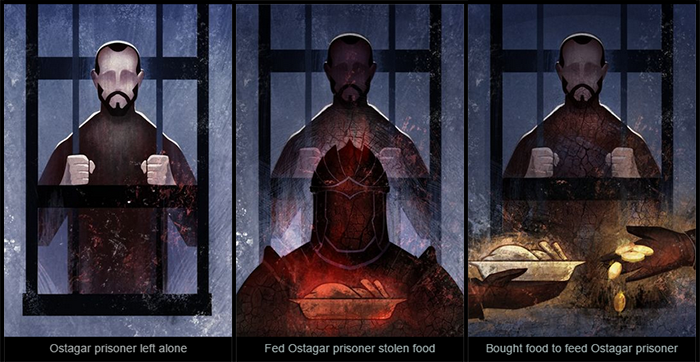 As tastes and trends change, video games continue to evolve, just like other forms of media. Recent years have seen the emergence of a new kind of gameplay: interactive narratives that emphasize practical and moral player choices. While decision making has always been a core feature of tabletop – and to some extent digital – role-playing games, it has only become a central component of video games in the past few years.
As tastes and trends change, video games continue to evolve, just like other forms of media. Recent years have seen the emergence of a new kind of gameplay: interactive narratives that emphasize practical and moral player choices. While decision making has always been a core feature of tabletop – and to some extent digital – role-playing games, it has only become a central component of video games in the past few years.
Choice-based games have generally been very well received by both critics and players, however, their upsurge also sparked numerous debates about “meaningful choices” and the “illusion of choice.” What constitutes a meaningful choice? What makes one choice more meaningful than another? Is it emotional impact or tangible effects that players desire? Is it even possible to provide these in a medium that is so limited by time, budget, and size constraints?
 Three of six possible options in the prologue of Dragon Age: Origins. Images from the Dragon Age Keep.
Three of six possible options in the prologue of Dragon Age: Origins. Images from the Dragon Age Keep.
This series of posts will examine these questions and speculate on them with the aid of reviews by critics and users, and forum posts concerning the topic of choices. In the next three posts, I will introduce a game or game series and explore player agency and its effects in it. Starting with the game series with the largest scope and finishing with the game with the smallest, these will be: the Mass Effect series, The Walking Dead episodic adventure game, and Kentucky Route Zero, another episodic adventure.
In my fifth – and final – post, I will provide an overview of the earlier posts and situate them in a larger cultural context. Hopefully we’ll be able to take away something about good interactive story design and how to construct futures and pasts in games, but at the very least, we’ll have looked at some great games – these do all come with my personal recommendation!
And to tide you over until my next post, here’s a quick teaser for our first series, Mass Effect:


Pingback: At a Crossroads: Meaningful Choices in Video Games, part 2 | EDZine